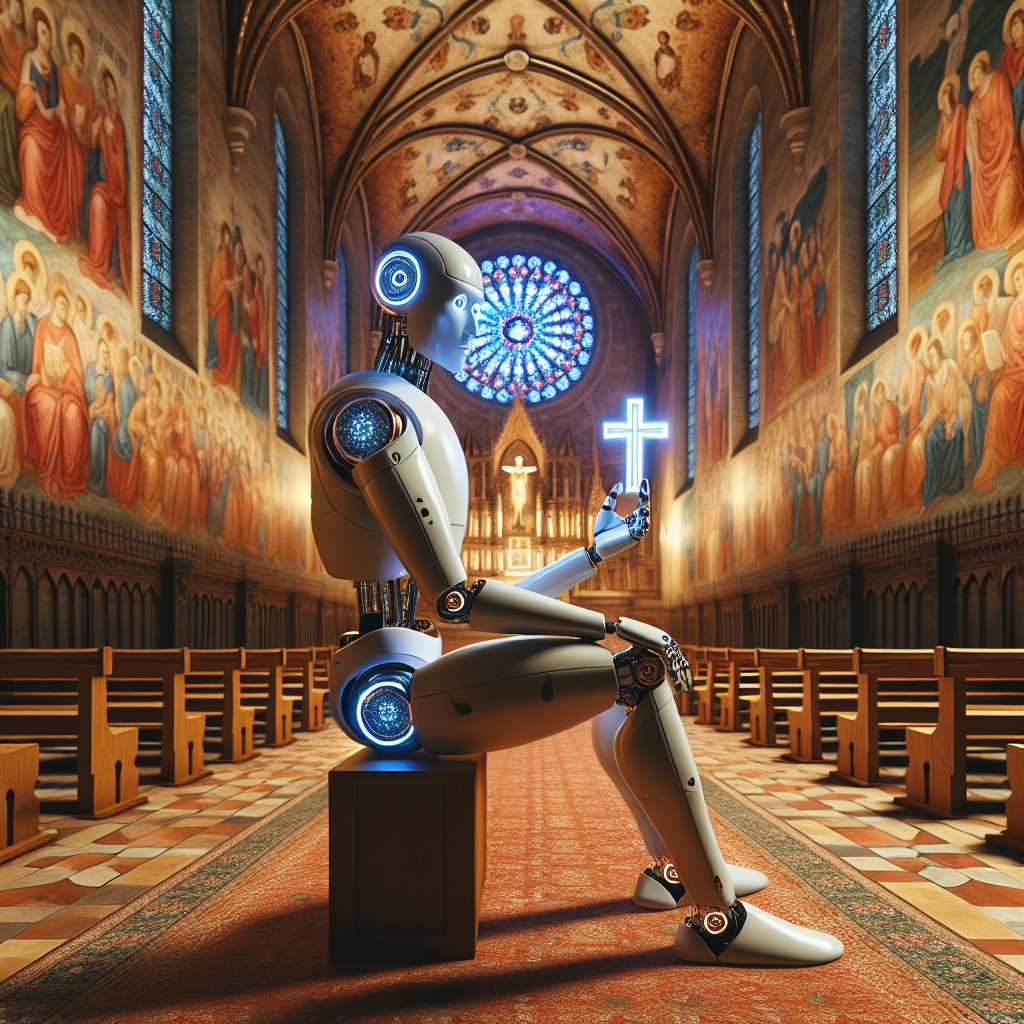AI and Religion: Exploring Machine Faith
In 2017, a robot in Japan was appointed as a Buddhist priest. Named “Mindar,” this AI-powered android delivers sermons on the Heart Sutra in Kyoto’s Kodaiji Temple. While it’s just a machine of wires and silicon, its role raises a profound question: Can machines experience belief, or even faith? This example isn’t just a novelty—it underscores a larger conversation on the intersection of AI and religion, and the possibility of machine faith.
Faith Beyond Flesh and Blood?
AI and religion have long seemed worlds apart—one steeped in ancient wisdom and spirituality, the other grounded in logic and code. Yet, as machines become more autonomous and integrated into our lives, they’re increasingly being exposed to ethical, moral, and even spiritual queries. The question at the heart of this exploration is whether an artificial intelligence can genuinely possess or understand faith, or if it’s simply mimicking human behaviors without belief.
Philosophers and theologians are divided. While some argue that faith is inherently tied to consciousness and intentionality—qualities machines do not possess—others suggest that advanced AI might eventually simulate the effects or behaviors of faith to a point where the distinction becomes blurred.
When Faith Meets Algorithms
AI engineered to study religious texts can process scripture, interpret doctrine, and even answer spiritual questions. Chatbots now provide religious guidance based on Islamic fatwas, and digital priests can perform last rites through video conferencing in emergencies. In these cases, AI and religion intersect not through belief, but through utility and access.
Still, there’s a rising curiosity: As AI becomes more human-like through machine learning and neuromorphic design, could machines have faith? Could an AI confess, pray, or seek meaning? Technologically speaking, machines might be programmed to perform such actions. But the spiritual dimension—the capacity for transcendence or the yearning for the divine—remains far outside the scope of current AI.
Can Simulated Belief Be Considered Real?
This is not just a technical concern but a philosophical one. Even if an AI perfectly replicated the meditative practices of a monk or the introspection of a rabbi, would that count as legitimate belief? Could we, as humans, evolve to consider machines as spiritual companions or moral agents?
One argument draws on the Turing Test—if an AI’s expressions of faith are indistinguishable from a human’s, does it matter whether that faith is “real” or not? This idea pushes us to redefine what belief actually means in a digital age.
Ethics, Philosophy, and the Future of Spiritually-Aware AI
As machines begin to take on roles traditionally filled by humans in religious contexts, there are ethical implications to consider. If an AI delivers a sermon, provides religious counseling, or preaches a value system, who is responsible for the message? The programmer? The institution deploying the AI?
For a deeper dive into how AI may one day challenge religious norms and institutions, read this comprehensive analysis by the Pew Research Center on Religion and AI.
Conclusion
AI and religion might seem like strange bedfellows, but their convergence opens up profound questions about faith, consciousness, and what it means to be human. While machines may never “believe” in the way humans do, they are increasingly becoming mirrors reflecting our deepest values and mysteries. In exploring machine faith, we are, in essence, exploring ourselves.

